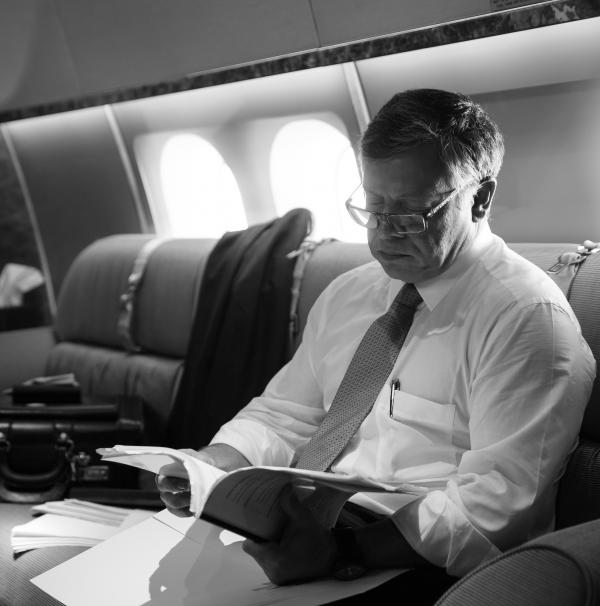King inaugurates SESAME international research centre

His Majesty King Abdullah on Tuesday inaugurated the Synchrotron-light for Experimental Science and Applications in the Middle East (SESAME) international research centre, the first of its kind in the region.
SESAME, a “third-generation” synchrotron light source located in Allan region in Balqa governorate, will contribute to developing scientific research in the fields of medicine, pharmacology, physics, chemistry, biology, and other sciences.
King Abdullah toured the centre’s facilities and was briefed on the technology used there, the stages of construction, and the operation process.
In its development stage, the centre brought together scientists from current SESAME members Jordan, Cyprus, Egypt, Iran, Pakistan, Palestine, Turkey and Israel, in addition to experts from a number of other countries on-board as observers, to build the first international research laboratory in the Middle East.
In remarks during the opening ceremony—attended by Her Royal Highness Princess Sumaya bint El Hassan, Prime Minister Hani Mulki, and senior officials—SESAME Council President Sir Chris Llewellyn Smith expressed his appreciation for Jordan and all the states and institutions that provided financial support for the centre.
SESAME has attracted a large numbers of scientists from the region, Smith said, noting that the centre has received 55 proposals to use its first two beamlines.
He added that the facility will house the world’s first accelerator powered solely by renewable energy.
In his address, the centre's director and the chairman of the Jordan Atomic Energy Commission, Khaled Toukan, said major financial, technological, and political challenges had to be overcome for SESAME to come into being.
The staff, the directors and the council of SESAME, he added, were able to complete the project with the help and encouragement of many supporters in Jordan and around the world.
With the project’s completion, Toukan said many challenges now lie ahead, such as building up the user community; constructing additional beam lines and supporting facilities, including an administration and guesthouse buildings; and securing the funding to do so.
He thanked His Majesty, the Royal Hashemite Court, and the government for their relentless support and also commended the efforts of member and observer states, and all international and regional organisations that offered help in completing the project.
Also during the ceremony, a documentary on SESAME was screened, highlighting its importance as a scientific facility for research exchange in a number of fields.
Jordan was selected out of five countries to host SESAME. Construction work on the centre, which cost over $100 million, started in 2003 after the signing of the membership agreement with other member states under the umbrella of UNESCO.


